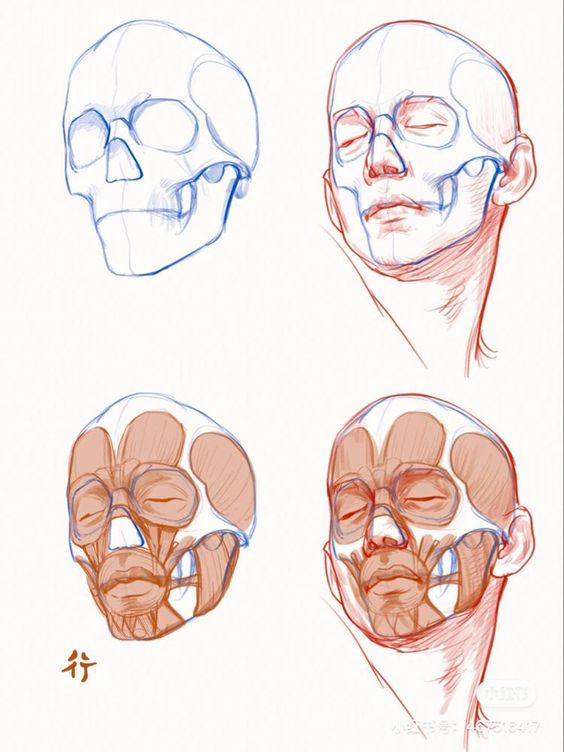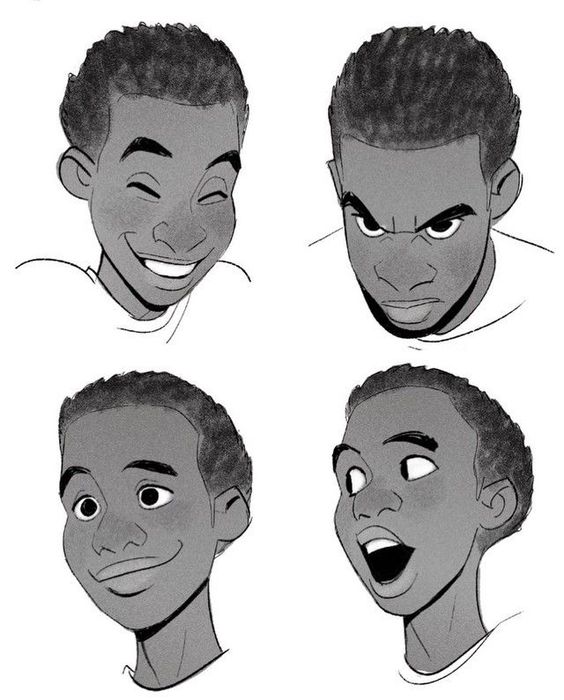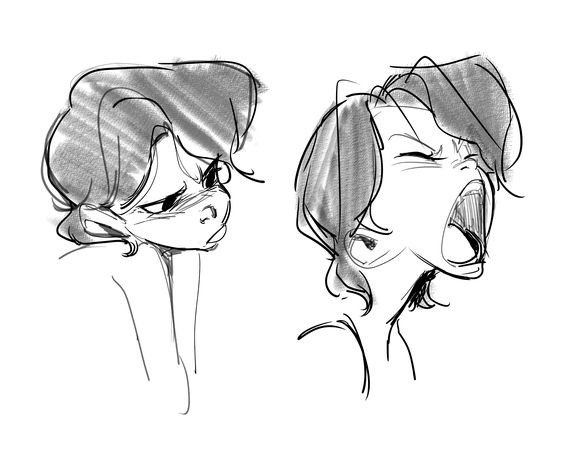
You’ve got your character’s look down—they’re ready to step into your animation! Everything’s set for their grand debut... until you realize, something’s missing. Instead of the lively personality you imagined, they just feel flat and blank. But don’t worry! Here’s how to bring that spark of life and emotion to your character.Let's start this fix with three easy steps:
All faces share the same foundation—muscles and bones that shape expressions. Understanding these basics helps you create emotions that look right when your character laughs, frowns, or raises an eyebrow. Even if you’re going for a less realistic style, knowing the core structure gives your character’s more believability. A solid foundation makes emotions feel natural, whether they’re big or small.

People use subtle clues to show how they’re feeling—a furrowed brow, a slight smile, or tense lips. Knowing these cues lets you build expressions that feel real and relatable. By exaggerating them, you can make emotions clear and engaging. Small changes in the face, like the difference between a smirk and a full grin, can completely change how your character feels and comes across.



Emotion doesn’t stop at the face—bring it into the body! Think about how people express themselves: a shrug, a head tilt, or a nervous fidget. A character who laughs with their whole body or slouches when they’re sad feels much more alive. Adding gestures, like hands moving or shoulders bouncing, makes your character feel real and relatable.
By combining these steps—anatomy, emotional cues, and body language—you’ll bring your character to life! Emotions are what make a character feel real, so don’t be afraid to dig into those details. With these tips, your character will have the spark that keeps people watching.
“How to Convey Emotion with 3D Animation.” Pebble Studios, 25 Jan. 2017, pebblestudios.co.uk/2017/01/how-to-convey-emotion-with-animation-falling-for-a-3d-bin/.
Src=’https://Secure.gravatar.com/Avatar/04e9cb7, img Alt=’’, et al. “How to Make Character Emotions More Expressive in Animation.” Animation Guides, 5 Sept. 2019, www.animationguides.com/character-emotions-animation/.
Yellowbrick. “Facial Expressions and Emotions for Animated Characters - Yellowbrick.” Yellowbrick, 4 Sept. 2024, www.yellowbrick.co/blog/animation/facial-expressions-and-emotions-for-animated-characters. Accessed 28 Oct. 2024.